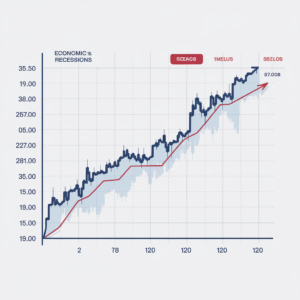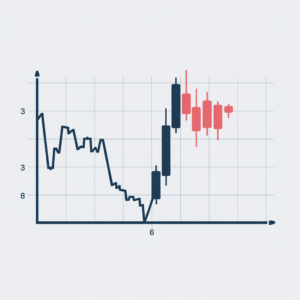The relationship between central bank decisions and cryptocurrency markets has become increasingly intertwined over the past decade. When major central banks like the Federal Reserve, European Central Bank, or Bank of Japan announce changes in interest rates or monetary policy, crypto markets often experience significant volatility. For instance, when central banks implement quantitative easing measures, investors frequently turn to cryptocurrencies as a potential hedge against inflation. The loose monetary policy environment that followed the 2020 global pandemic demonstrated this correlation, as Bitcoin and other cryptocurrencies saw substantial gains amid unprecedented money printing. Conversely, when central banks tighten monetary policy and raise interest rates, crypto markets often experience downward pressure as investors shift toward higher-yielding traditional assets. This dynamic highlights how crypto has evolved from a fringe asset to one that’s deeply connected to broader financial market sentiment and monetary policy decisions.
Geopolitical Tensions and Cryptocurrency Adoption

Global political conflicts and tensions have repeatedly proven to be significant catalysts for cryptocurrency adoption and price movements. During times of geopolitical uncertainty, cryptocurrencies often serve as a flight-to-safety asset, particularly in regions experiencing political instability or economic sanctions. This was evident during various international conflicts where citizens turned to cryptocurrencies to preserve their wealth and conduct cross-border transactions when traditional financial systems were compromised. The technology’s borderless nature and resistance to centralized control make it an attractive alternative during diplomatic crises. Additionally, state-level interest in cryptocurrencies has grown, with some nations exploring them as tools to circumvent international sanctions or reduce dependence on the US dollar-dominated global financial system.
Global Regulatory Developments and Market Impact
The evolving regulatory landscape for cryptocurrencies across different jurisdictions continues to shape market dynamics and investor sentiment. Major regulatory announcements, whether positive or negative, can trigger significant price movements and affect institutional adoption rates. The approval of Bitcoin ETFs in various countries, the implementation of crypto-friendly policies in nations like El Salvador, or regulatory crackdowns in major markets like China have all demonstrated the profound impact that government policies can have on the crypto ecosystem. These regulatory developments influence not only price action but also the broader adoption of cryptocurrencies in traditional financial systems, affecting everything from institutional investment to retail participation.
Economic Recessions and Cryptocurrency Performance

The behavior of cryptocurrency markets during economic downturns offers fascinating insights into their role as alternative assets. Initially touted as uncorrelated assets, cryptocurrencies have shown varying degrees of correlation with traditional markets during recent recessions. During the COVID-19 market crash of 2020, cryptocurrencies initially fell alongside traditional assets but later demonstrated remarkable recovery and growth. This pattern has sparked intense debate about whether cryptocurrencies serve as effective hedges during economic crises or if they actually amplify portfolio risk during downturns. Understanding how different cryptocurrencies perform during various types of economic stress provides valuable insights for portfolio management and risk assessment.
Inflation Trends and Cryptocurrency Valuation
The relationship between inflation rates and cryptocurrency valuations has become a central theme in investment discussions. Bitcoin, in particular, has been frequently positioned as “digital gold” and a hedge against inflation, similar to precious metals. When countries experience high inflation or hyperinflation, local interest in cryptocurrencies often surges as people seek to preserve their purchasing power. Historical data from countries like Venezuela, Turkey, and Argentina demonstrates how cryptocurrency adoption tends to accelerate during periods of significant currency devaluation. This pattern has led to growing interest in cryptocurrencies as potential inflation hedges among institutional investors, though the effectiveness of this strategy remains a topic of ongoing debate.
Global Supply Chain Disruptions and Blockchain Adoption
Supply chain crises and disruptions have highlighted the potential benefits of blockchain technology and cryptocurrencies in international trade. The transparency and immutability of blockchain systems offer solutions to many traditional supply chain challenges, leading to increased interest in cryptocurrency-based payment systems for international trade. During major supply chain disruptions, companies and countries have explored blockchain-based solutions for everything from inventory management to cross-border payments, driving interest in certain cryptocurrency projects focused on supply chain solutions. This has contributed to the evolution of how cryptocurrencies are viewed in the context of global trade and commerce.
Employment Trends and Crypto Market Behavior

Changes in global employment patterns and labor market conditions have shown surprising correlations with cryptocurrency market activity. During periods of high unemployment or significant labor market disruption, cryptocurrency trading volumes and adoption rates often show notable changes. The rise of remote work and digital transformation has also contributed to increased interest in digital assets and blockchain technology. Furthermore, the growing cryptocurrency industry itself has become a significant employer, creating new job categories and career opportunities, which in turn affects how these assets are perceived and valued in the global economy.
International Trade Policies and Crypto Adoption
The evolution of international trade relationships and policies has significant implications for cryptocurrency markets. Trade wars, tariffs, and changes in international trade agreements can drive countries and businesses to explore alternative payment systems, including cryptocurrencies. The development of central bank digital currencies (CBDCs) and their potential impact on international trade has also become a crucial factor in how cryptocurrencies are valued and adopted. The role of cryptocurrencies in facilitating international trade while potentially bypassing traditional banking systems continues to evolve, especially in regions affected by trade restrictions or sanctions.
Technology Sector Performance and Crypto Correlation
The performance of the global technology sector has shown strong correlation with cryptocurrency markets, particularly as institutional adoption has increased. Major movements in tech stocks often coincide with similar trends in cryptocurrency prices, suggesting that investors often view these assets through a similar lens. The success or failure of major technology companies, especially those involved in blockchain or cryptocurrency projects, can have substantial effects on the broader crypto market. This relationship has become more pronounced as traditional technology companies have increased their exposure to cryptocurrencies and blockchain technology.
Global Energy Markets and Mining Economics
The state of global energy markets has profound implications for cryptocurrency mining operations and, by extension, the entire crypto ecosystem. Changes in energy prices directly affect mining profitability and hash rates, which can influence cryptocurrency prices and network security. The ongoing debate about cryptocurrency mining’s environmental impact has also led to increased focus on renewable energy sources and energy-efficient consensus mechanisms. The geographical distribution of mining operations continues to shift in response to energy costs and regulatory environments, affecting the decentralization and security of various cryptocurrency networks.
Conclusion
The intricate relationship between global economic events and cryptocurrency markets demonstrates the increasing integration of digital assets into the broader financial ecosystem. While cryptocurrencies were initially developed as alternatives to traditional financial systems, they have evolved to become responsive to many of the same economic factors that influence conventional markets. Understanding these relationships is crucial for investors, as global economic events can create both opportunities and risks in the crypto market. As the cryptocurrency market continues to mature, its correlations with traditional economic indicators may evolve further, potentially leading to new investment paradigms and opportunities. Successful cryptocurrency investment strategies will increasingly require a comprehensive understanding of both crypto-specific factors and broader economic trends, making it essential for investors to stay informed about global economic developments and their potential impacts on the digital asset space.
